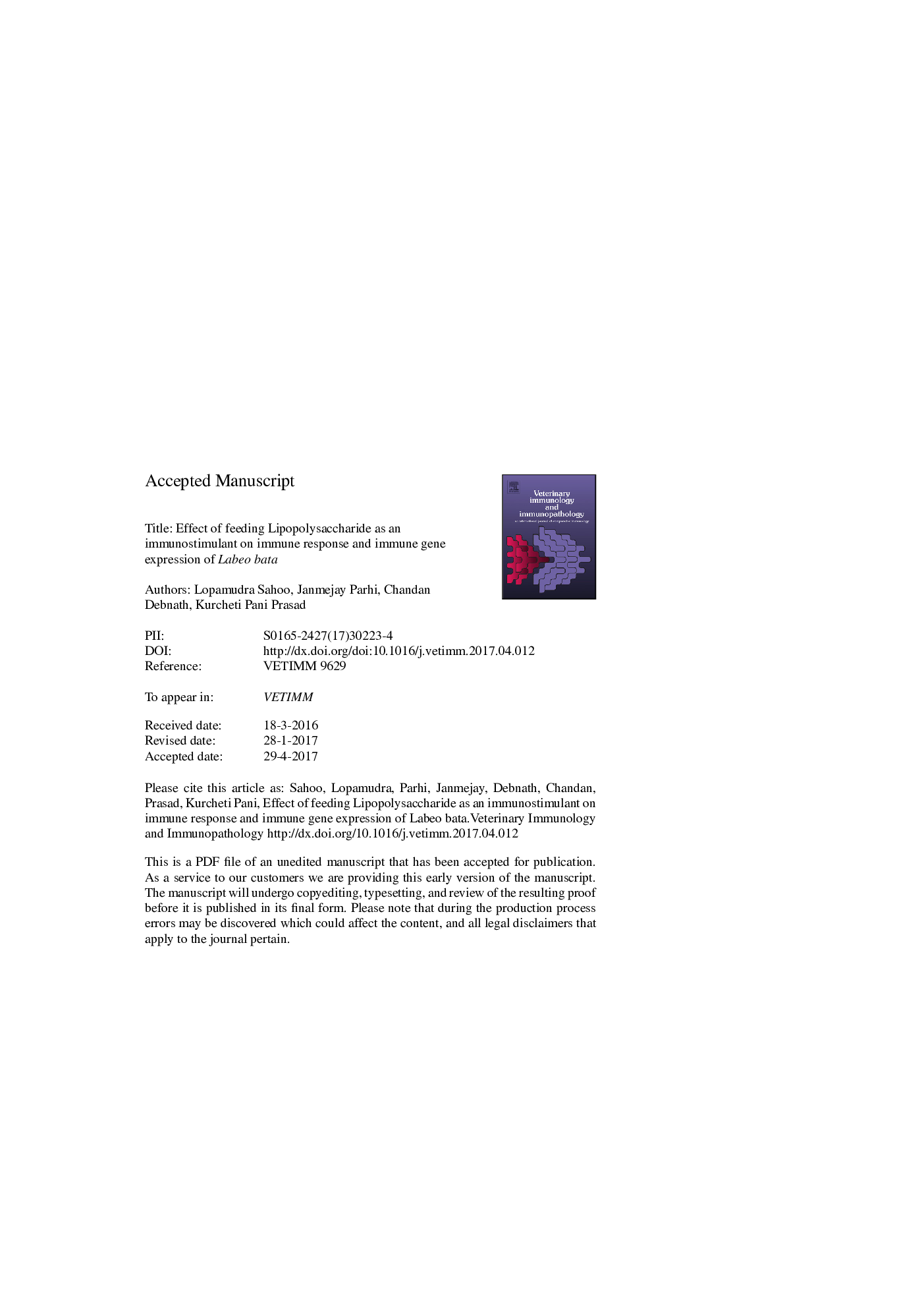| Article ID | Journal | Published Year | Pages | File Type |
|---|---|---|---|---|
| 5544711 | Veterinary Immunology and Immunopathology | 2017 | 23 Pages |
Abstract
This study investigates the effects of dietary lipopolysaccharide (LPS) as an immunostimulant on hematology, innate immunity, immune gene expression and protection against Edwardsiella tarda on Labeo bata. A basal diet supplemented with 0, 50, 100 and 150 mg LPS kgâ1diet was fed to the four different groups for 30 days. The haematological (total erythrocyte count, total leukocyte count, total serum protein, albumin and globulin), innate immune parameters (respiratory burst, serum lysozyme, myeloperoxidase and serum bactericidal activity), immune gene expression (C3, β-2 microglobulin, lysozyme g, transferrin, IFN-1, IFN-γ) were monitored at 7th, 15th, 30th day and one day post challenge (DPC) with E. tarda. All the studied haematological, innate immune parameters and expression of immune gene increased significantly (p â¤Â 0.05) in LPS fed group in comparison with control. However the group fed 100 mg kgâ1 LPS in feed showed highest activity on 7th day and 1DPC. The group fed 100 mg kgâ1 LPS also recorded highest relative percent survivability after challenge with E. tarda. Therefore this study suggests that LPS at 100 mg kgâ1 could be used as an immunostimulant in feed to enhance the protection of bata during periods of increased disease risk.
Related Topics
Life Sciences
Agricultural and Biological Sciences
Animal Science and Zoology
Authors
Lopamudra Sahoo, Janmejay Parhi, Chandan Debnath, Kurcheti Pani Prasad,
